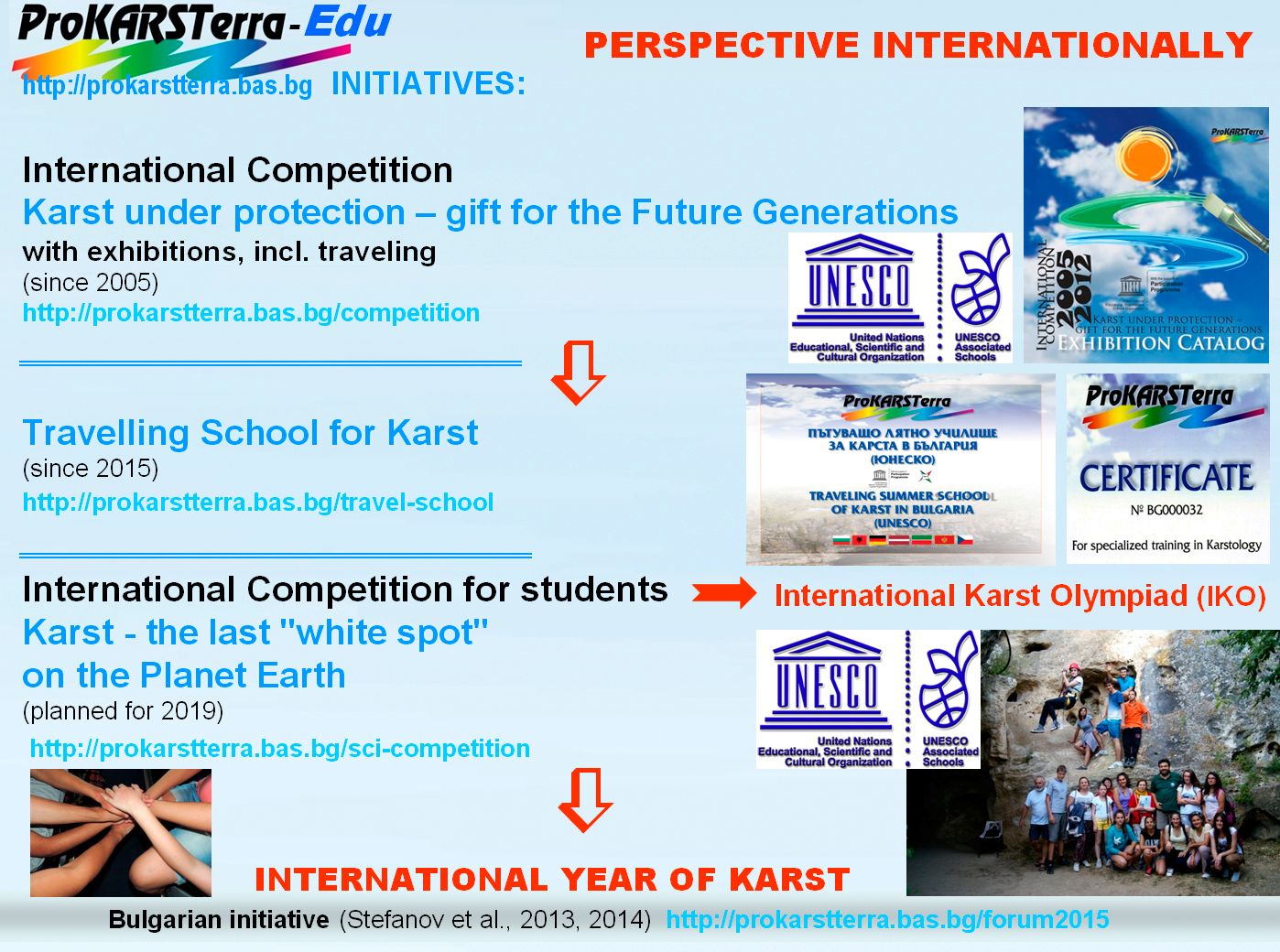The successful realization in an international format of the first competition for students "Karst - the last "white spotФ on the planet EarthФin August 2019 (Bulgaria) is a prerequisite for it to develop and become an original form of international competition of a new type. It is important to emphasize that the focus in this competition is not on the "fight for medals" but on demonstrating the ability to apply knowledge and skills in a real karst environment. Moreover, the teamwork is not the leader in the competitive environment, but the team work - the success of the team depends on the УcollaborationФ between its members (the synergist is the leading: team decisions> gathering knowledge and skills of individual members).
Given the widespread karst spread around the world and the urgency of problems related to the exploitation of karst resources and the sustainable development of karst territories, the competition can be transformed into an International Karst Olympiad (IKO).

Preparing for the competition also changes the traditional way of teaching - through karst, the real world begins to be perceived by students as cyclical, built up by systems in which the person with his society is directly involved. Humans are an integral part of the natural karst system in which they live, and therefore they are obliged to comply with its laws of development. Through the competition, the student learns to draw conclusions about the effective use of karst resources. The deeper it enters the essence of the karst systems, the more effectively it will be able to analyze and evaluate the real and potential transformations in the globally changing modern world.
The successful first competition also proves the effectiveness of the paradigm ProKARSTerra aiming effective synergies between research, karst territories management, karst resources business and education.
The competition is also an important step towards a change in the conceptual model of teaching so far - from traditionally taught closely disciplined disciplines through Earth Sciences to Earth Systems Science.
Upcoming changes in the conceptual model of teaching

The need for this change at all levels of education is becoming more urgent, especially against the background of global change and the problems they cause humanity to face. The karst geosystems, with their pronounced systematic nature, prove to be one of the "most visible" and most promising ones in this direction. The active implementation of innovative education for / through karst can play an important role in this respect - the experimental results from the implementation of the ProKARSTerra-Edu strategy support this claim.
Successfully implemented 3 international strategy initiatives (competition, traveling school and competition) have already involved over 600 participants from 23 countries - a reason for the competition, along with other ProKARSTerra-Edu initiatives to be proposed in the International Cave Year and karst`2021 (International Year of Caves and Karst, IYCK`2021. The original idea (International Year of Karst was launched by the Experimental Laboratory of Karstology of the NIGGG-BAS in 2013, and in 2015 it was supported by participants in International Scientific and Practical Forum ProKARSTerra`2015. Subsequently, the idea was developed by the International Union of Speleology (UIS). UNESCO's assistance can and should be expected to achieve this, especially given the threefold support that the World Organization has provided for the development of the educational initiatives of the ProKARSTerra-Edu strategy.


